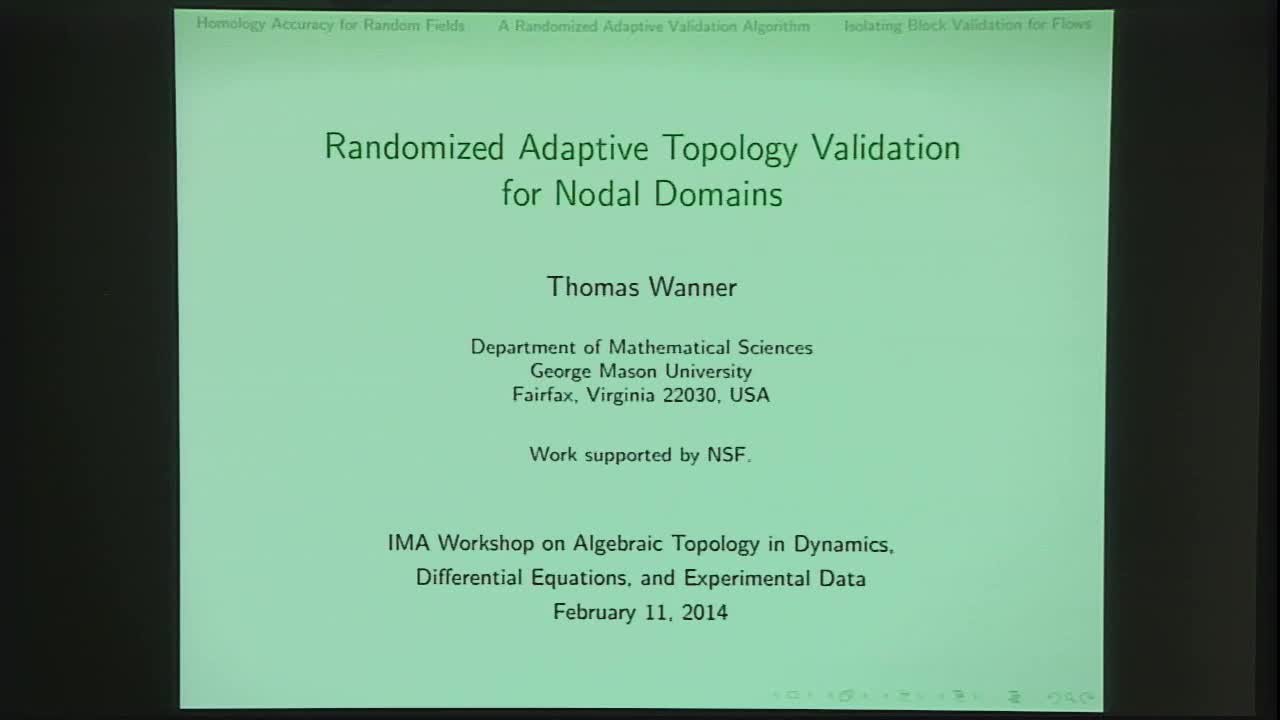Randomized Adaptive Topology Validation for Nodal Domains
Presenter
February 11, 2014
Keywords:
- Homology, structure
MSC:
- 57Txx
Abstract
Homology has long been accepted as an important computational tool for
quantifying complex structures. In many applications these structures arise as
nodal domains or excursion sets of real-valued functions, and are therefore
amenable to a numerical study based on suitable discretizations. Such an
approach immediately raises the question of how accurately the resulting
homology can be computed. In this talk we present a probabilistic algorithm for
correctly determining the topology of two-dimensional excursion sets. The
approach relies on constructing an appropriate cubical approximation for the
nodal domains based on the behavior of the defining function at the vertices of
an adaptively generated grid. The algorithm is probabilistic in nature in order
to alleviate grid alignment issues, and the homology of the resulting nonuniform
cubical complex is determined using coreductions. We illustrate this approach
with applications to time-dependent patterns generated by models for phase
separation and to Conley index theory.
